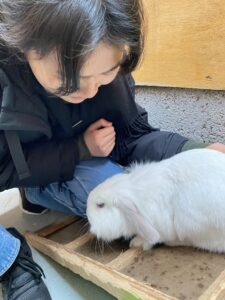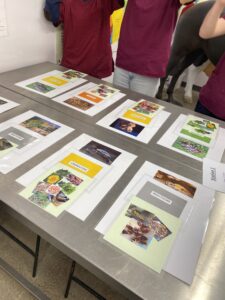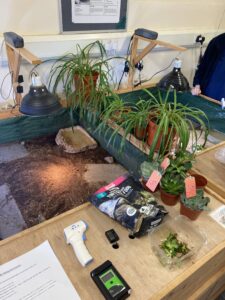Hello everyone,
My name is Lora, and I’m a fourth-year vet student on the Graduate Entry Programme. Today, I want to share my experience from the exotic and equine semester, focusing mainly on my learning journey with exotic animals.
I’ve always had a soft spot for exotics—probably because my very first pet was a rabbit. That childhood bond sparked a lifelong fascination, so when choosing a vet school, Edinburgh instantly stood out. Before my interview, they introduced the curriculum and highlighted their renowned exotic department, the Dick Vet Rabbit and Exotic Practice, and at that moment, I knew I was in the right place.
The first week of my winter semester started with rabbit medicine, and I was completely captivated. From their unique physiology and behaviour to their specialised healthcare needs, every lecture deepened my appreciation for these complex creatures. Learning about the challenges in rabbit medicine—such as their delicate digestive systems and the importance of proper husbandry only reinforced my passion for working with exotics. This week reignited my determination to become an exotic vet and solidified my commitment to mastering the care of these often-misunderstood animals.
Beyond rabbits, we also explored small exotic mammals, as well as avian, amphibian, and reptile species. Each group presents its own unique anatomy, husbandry requirements, and medical considerations, making exotic medicine both challenging and endlessly fascinating.

This week, I had my reptile husbandry class, which deepened my understanding of how crucial proper care is for reptile welfare. Factors like temperature, UVB lighting, humidity, and substrate all play vital roles in maintaining their health. I learned that when designing enclosures, it’s essential to replicate their natural habitat as closely as possible—considering how they live in the wild, what they eat, and adjusting the environment accordingly. Moreover, each reptile species has specific needs, meaning thorough research is essential for providing the best care. This class reinforced the idea that husbandry isn’t just about creating a suitable setup; it’s a key factor in preventing disease and promoting overall well-being in exotic pets.

Later this month, I will have more practical classes on avian, reptile, and mammal handling, along with learning how to perform clinical exams on these species. I look forward to gaining more hands-on experience. This has been my favourite semester in vet school so far!



